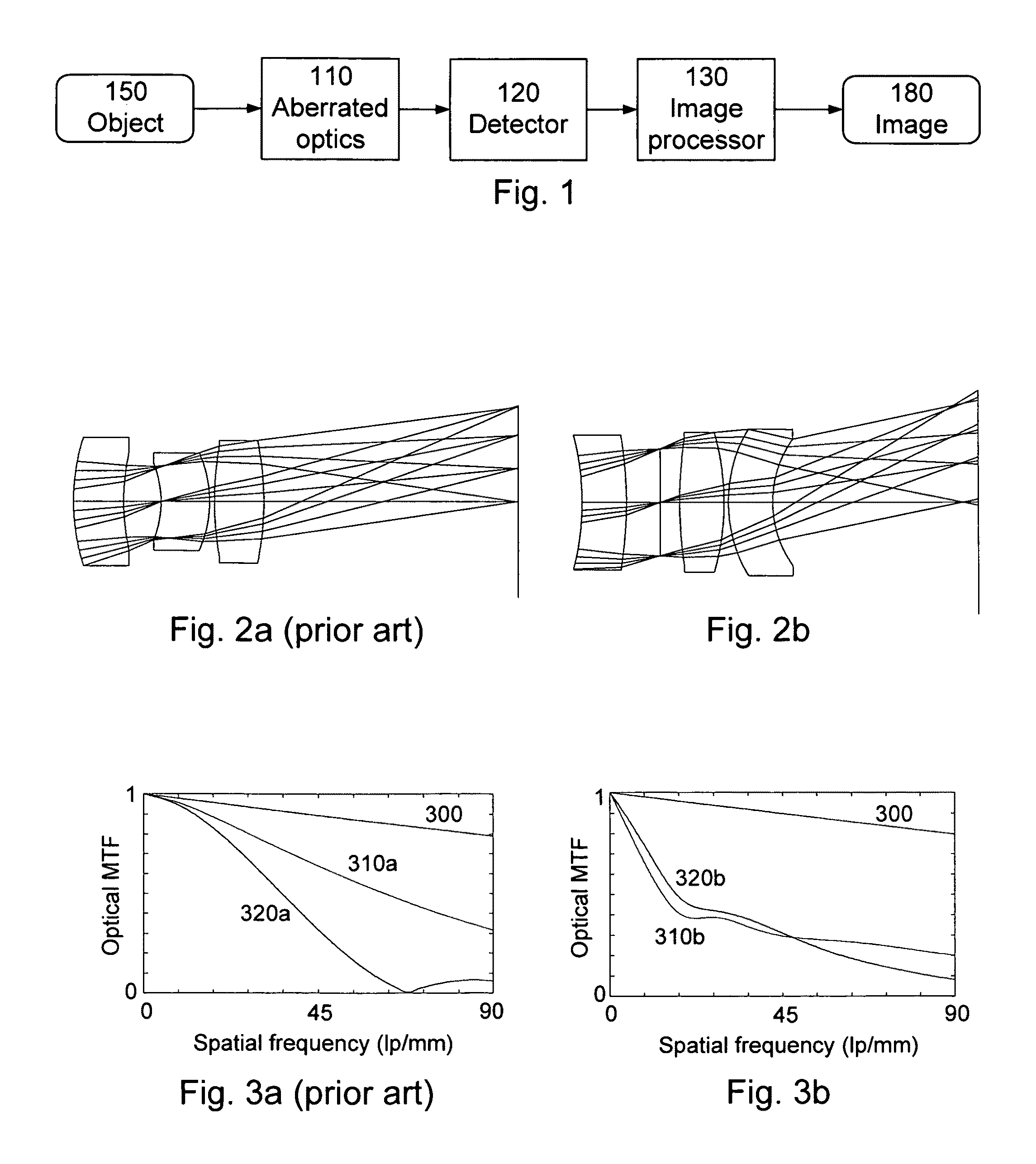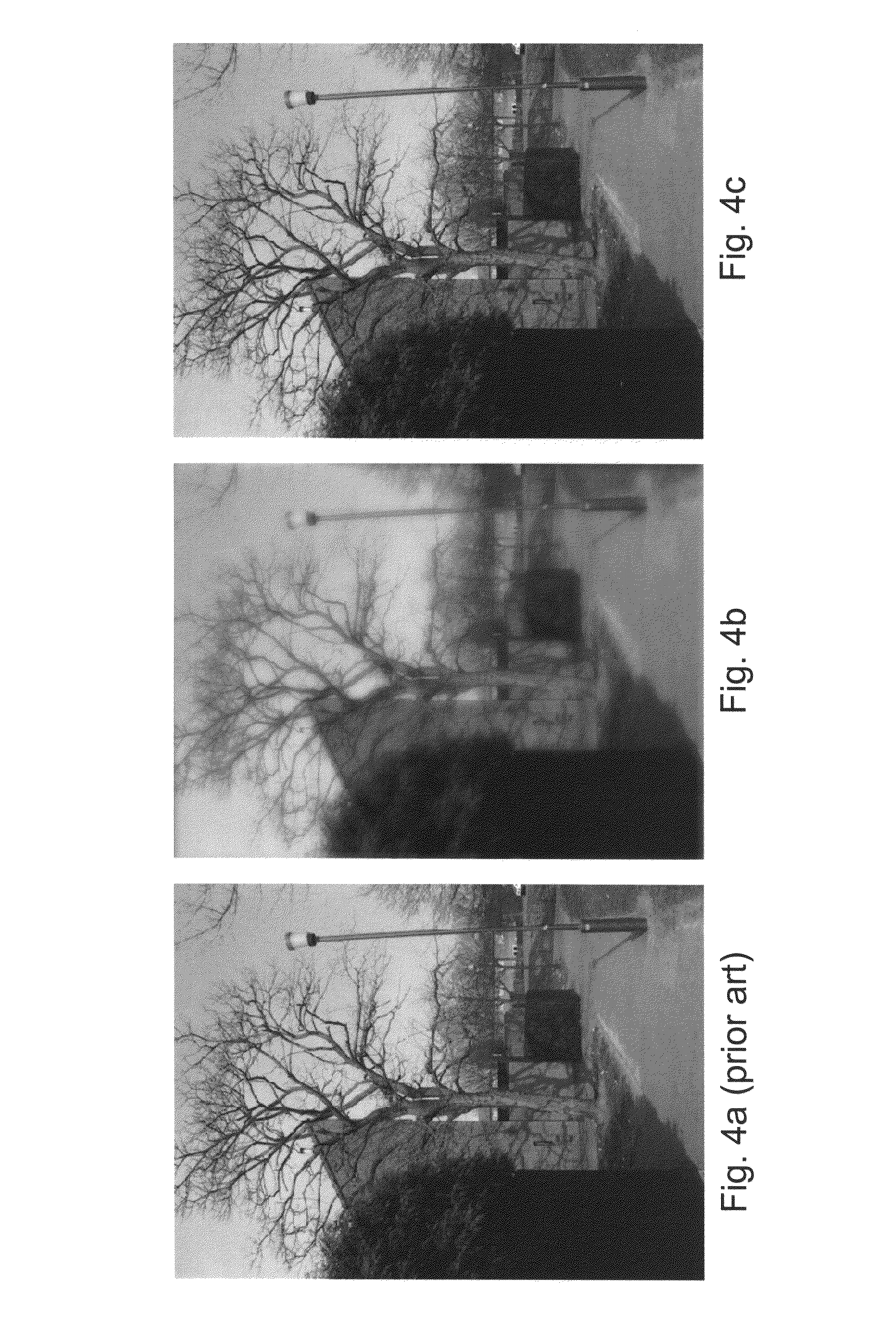Electro-optic imaging system with aberrated triplet lens compensated by digital image processing
a technology of optical imaging and digital image processing, applied in the field of optical imaging systems with aberrated optics, can solve the problem of incomplete correction of triplet lenses, and achieve the effect of increasing the depth of field
- Summary
- Abstract
- Description
- Claims
- Application Information
AI Technical Summary
Benefits of technology
Problems solved by technology
Method used
Image
Examples
Embodiment Construction
[0040]FIG. 1 is a block diagram of an electro-optic imaging system according to one aspect of the invention. The imaging system includes aberrated optical subsystem 110 (e.g., a lens assembly), detector subsystem 120 (e.g., CCD detector array) and digital image processing subsystem 130 (e.g., typically implemented in dedicated chips or software). The imaging system produces a digital image 180 of an object 150. Using a triplet lens as an example optical subsystem 110, the triplet lens is not diffraction-limited. Rather, it suffers from aberrations which are compensated, at least in part, by the digital image processing subsystem 130. However, the aberrated triplet lens 110 is also less sensitive to defocus. Thus, the depth of field is increased compared to a traditional diffraction-limited triplet.
[0041]As an example, compare a traditional triplet-based system with the system in FIG. 1. Assume a 50° full field of view, focal length f˜5.6 mm, and F / 3.0 optical system. Also assume the...
PUM
 Login to View More
Login to View More Abstract
Description
Claims
Application Information
 Login to View More
Login to View More - R&D
- Intellectual Property
- Life Sciences
- Materials
- Tech Scout
- Unparalleled Data Quality
- Higher Quality Content
- 60% Fewer Hallucinations
Browse by: Latest US Patents, China's latest patents, Technical Efficacy Thesaurus, Application Domain, Technology Topic, Popular Technical Reports.
© 2025 PatSnap. All rights reserved.Legal|Privacy policy|Modern Slavery Act Transparency Statement|Sitemap|About US| Contact US: help@patsnap.com



